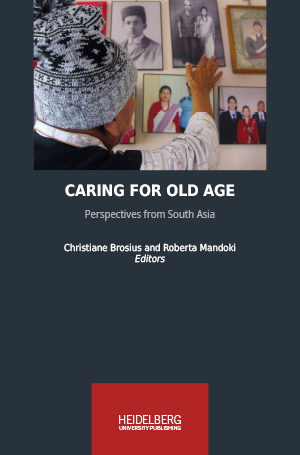Zitationsvorschlag
Lizenz (Kapitel)

Dieses Werk steht unter der Lizenz Creative Commons Namensnennung - Weitergabe unter gleichen Bedingungen 4.0 International.
Identifier (Buch)
Veröffentlicht
Medical Institutions and their Counter-Cultures
Abstract Using a mix of visual and literary storytelling as well as participant observation in the field, this chapter attempts to present the Dutch verpleeghuis (nursing home for the dependent elderly) at a particular historical juncture in the mid 1980s when it could be conceived as a public space with the potential for creativity and self-critique. At first sight, the verpleeghuis as a total institution, suggesting a particularly rigorous kind of ‘disciplinary regime’, seems to be an odd site on which to explore creativity. However it is precisely through its totalizing character that it is able to posit itself as being outside of society and thereby enabling it to hold up a mirror to society and also to its own working. The 1980s were a time when the humanist disciplines were very influential in gerontology in the Netherlands as they offered ways of conceiving forms of bodily intersubjectivity and individuation and enabled verpleeghuis doctors to critically reflect on their own practices. We see this happening in this chapter through cartoons and an allegorical tale written by a doctor who is reflecting on the iron cage of his own bureaucratic work place and contrasting the “should” of the ideal goals of the total institution with the “is” of bureaucratic practice. This looking back to the verpleeghuis past is contrasted with the neo-liberal present. Ironically, many of the ideas that were central to the self-critique of the verpleeghuis as a disciplinary regime, such as self-cultivation and democracy, are the very ideas that are supposed to be at the heart of the new institutional arrangements, yet have the paradoxical effect of closing off all notions of public spaces where critical voices find a space.
Keywords ADL, verpleeghuis, counter publics, cartoon, fairy tale, critique, embodiment






